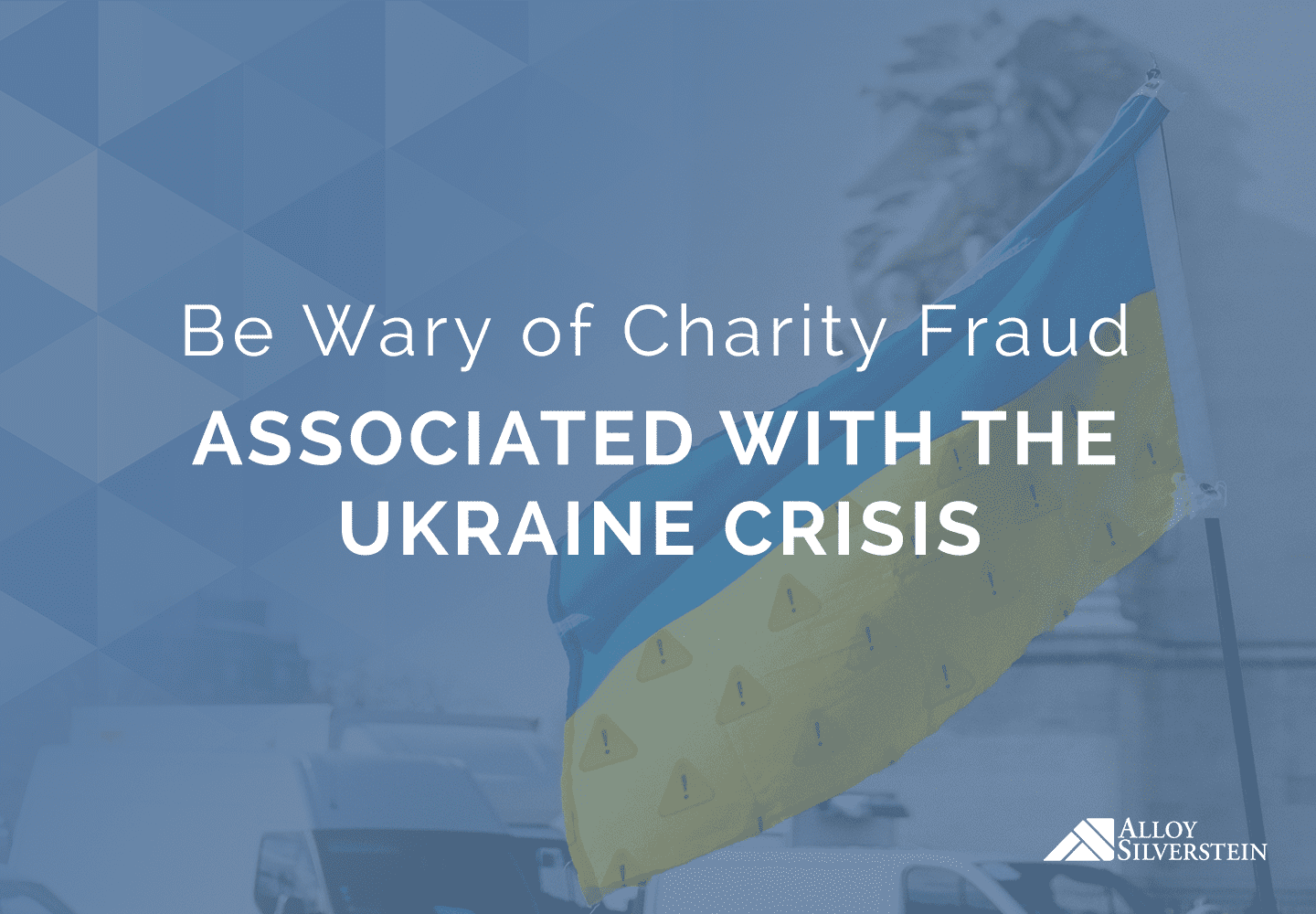
The devastating news coming out of Ukraine has led many Americans to contribute to humanitarian relief charities and collection drives in recent weeks. But with such a rise in high-profile donations also comes an increase in charity fraud attempts. Alloy Silverstein and the New Jersey Society of CPAs (NJCPA) warn well-meaning taxpayers to protect themselves by being wary of who exactly they are contributing to.
Taking the time to research charities can help donors make certain that their donations are being used for the intended purpose.
The first step is determining whether the charity is a Sec. 501(c)(3) not-for-profit organization. The IRS’s exempt organization search can assist with that. You can also search for a charity via the New Jersey Division of Consumer Affairs.
The GuideStar and Charity Navigator websites offer additional information. GuideStar provides access to recent IRS Form 990, Return of Organization Exempt From Income Tax, filings, which can be used to gauge how much a not-for-profit spends on programs.
Charity Navigator and other organizations rate charities on a number of criteria, but if you’re researching this carefully, it’s worth a careful check of their methodology to make sure you know what the ratings are based on.
Experts advise that money should never be donated over the phone, links in email solicitations should not be clicked, and high-pressure tactics seeking to get you to pay immediately are a sign of danger.
Other tips include:
If you believe you are the victim of a scam, contact your financial institution to put a hold on your credit card and notify the attorney general in your state, then file a complaint with the FBI’s Internet Crime Complaint Center, https://ic3.gov. You can also turn to an Alloy Silverstein Accountant and Advisor to discuss your Identity Theft Defense options.
Further Reading:
For more information on types of fraud and what to look out for, check out Alloy Silverstein’s Fraud Prevention resources.
Empowering business owners and individuals in South Jersey and Philadelphia to feel confident through proactive accounting and advisory solutions.